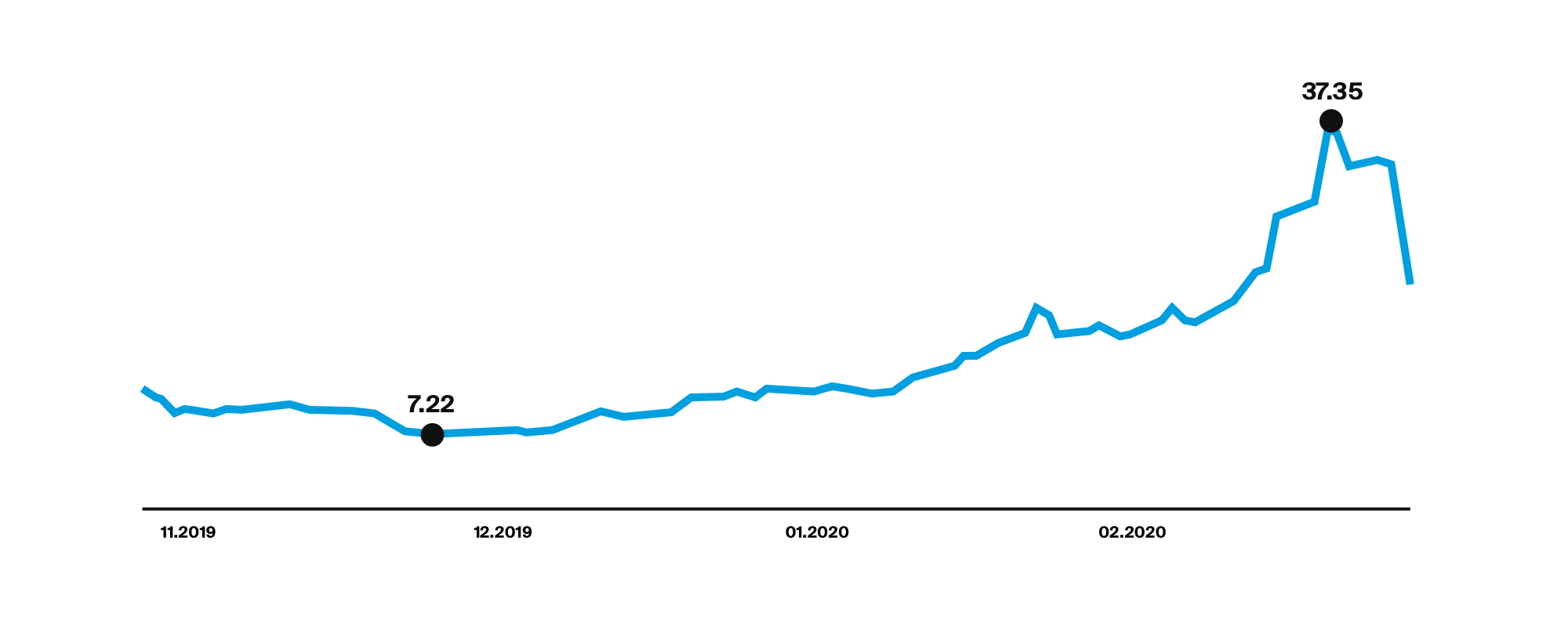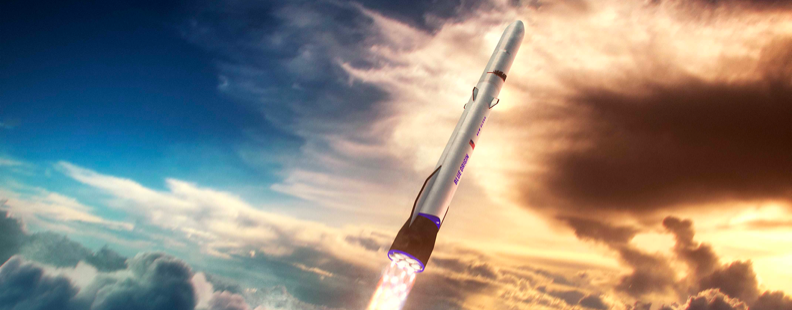The first Space Race dates back to the Cold War between the US and the Soviet Union in the 1950s, with each of these superpowers trying to be the first in many space-related milestones. Fifty years after Neil Armstrong stepped foot on the moon, a new race is taking place as multiple companies are attempting to commercialise space travel.
The first tourist in space happened in 2001 when a man named Dennis Tito paid $20 million to visit the International Space Station in Russia’s Soyuz rocket. The retirement of the US’s Space Shuttle in 2011 meant that the Soyuz is now the only way to reach the International Space Station. Therefore, seating is limited and is only given to government astronauts, which put a halt to Russia’s space tourism program.
So, although space tourism is not necessarily unprecedented, companies such as Virgin Galactic, SpaceX and Blue Origin all have hopes to send tourists to space and tap into the potential of this industry. UBS predicts that the space tourism industry could be worth $3 billion by 2030. This article provides an introduction to the aforementioned companies that are in the running.
Virgin Galactic
Virgin Galactic, backed by Sir Richard Branson, made headlines last year when it became the first space tourism company to go public. The company offered its initial public offering (IPO) on the 28th of October 2019, which raised around $2.3 billion. Fittingly, Virgin Galactic listed under the ticker symbol SPCE.
Virgin Galactic was founded back in 2004. Since its beginnings, the company has been adding individuals to a waiting list to experience a journey into space that offers a few minutes of complete weightlessness and views of the earth from above. The ninety-minute experience goes for $250,000 per ticket. Its aircraft, the SpaceShipTwo, has a traditional runway take-off and landing, in comparison to other spacecrafts that are vertically launched. The company has around 600 people signed up so far, including celebrities Justin Bieber and Leonardo DiCaprio. It recently launched a ‘One Small Step’ initiative whereby online registrants can pay a $1,000 refundable deposit to secure a place in line for future ticket reservations once Virgin Galactic begins taking reservations again. In its Q4 2019 results, the company reported 7,957 registrations as of February 2020, which is a 124% increase in registrations from September 2019.
So far, the share prices of Virgin Galactic have had a relatively impressive performance. Shares were priced at $11.79 in its IPO and on the 20th of February, prices reached a high of $42.49, an increase of 260%. The company released its Q4 2019 results on the 25th of February and reported a net loss of $73 million and revenues that missed analysts’ expectations. On the 27th of February, the stock closed at $21.49. This is still 82% more than its initial trading price but about 50% less than its high on the 20th of February.

SpaceX
Elon Musk’s SpaceX is another company in the space tourism industry. It was founded back in 2002 with the goal of enabling people to live on other planets, particularly mars. Aside from working to bring people to space, SpaceX regularly takes satellites and cargo into space and also works closely with NASA. In 2012, SpaceX made history as the first commercial company to ever visit the International Space Station with its spacecraft Dragon. Humans were not on board, but cargo was successfully delivered to the station. The company’s twentieth commercial resupply services mission to the International Space Station is expected in March 2020.
In 2014, NASA awarded SpaceX with a $2.6 billion commercial crew contract to fly American astronauts into space. While the Dragon has yet to carry humans into space, it was designed from the beginning to be able to. On January 19th, SpaceX launched an emergency escape simulation for the Dragon, which was deemed a success. As a result, the Crew Dragon, which can carry up to seven passengers, could have its first mission with NASA astronauts on board as early as March or April 2020. This would be the first time that astronauts were sent into space from US soil since 2011.
SpaceX has also recently announced plans to fly four tourists into orbit in the Crew Dragon capsule. The mission would last for five days and is expected to launch sometime between 2021 and 2022. The price of this experience has not been disclosed. Before this, SpaceX announced in 2018 that Japanese billionaire Yusaku Maezawa would be the company’s first private passenger to fly around the moon in 2023. SpaceX’s offering differs from Virgin Galactic’s. Virgin Galactic’s is focused on point-to-point travel, in ninety minutes and has a traditional runway take-off and landing. SpaceX’s, on the other hand, use rockets to vertically launch into space, lasts for multiple days, and is more expensive.
In February, it was announced that Musk is looking to raise $250 million for SpaceX, which brings its valuation to around $36 billion. SpaceX is currently privately held, meaning you cannot buy shares of the company at this time. A part of SpaceX’s business is sending Starlink satellites into space in efforts to made broadband internet services operational by the end of 2020 in the United States and Canada. The company said that Starlink could potentially spin off and go public in the next several years.
Blue Origin
Founded in 2000 by Jeff Bezos, Blue Origin is another company hoping to commercialise space travel. The company’s vision is a future where millions of humans live and work in space as a means to preserve the earth for generations to come. Blue Origin’s business model focuses on the reusability of launch vehicles and rocket engines thereby reducing costs and enabling space travel to be more accessible.
Although Blue Origin is not currently taking reservations, its eleven-minute galactic experience will offer the chance to feel weightless and see the earth from above in its New Shepard rocket system, which can seat six people. Individuals will then be brought back down to earth with a parachute landing. It is estimated that tickets will cost around $200,000.
In December 2019, Blue Origin successfully tested the same New Shepard vehicle for the sixth time. However, a timescale has not yet been released as to when the company hopes to be able to send people into space.
Blue Origin also partnered up with Lockheed Martin, Northrop Grumman Corp and Draper in October 2019 for the development of its Blue Moon lunar lander. The team’s goal is to offer a Human Landing System for NASA’s Artemis program with the Blue Moon to be able to return Americans to the moon by 2024.
Like SpaceX, Blue Origin is also privately held and, therefore, shares of the company cannot be bought at this time.
Which will be the first?
At this time, it is unclear which of these companies will be the first to successfully send humans into space and open the door for space tourism. Aside from being the first to send people into space, each of these companies offers a different space experience and their business models and products vary. Therefore, each will have its spin on space tourism. Virgin Galactic, SpaceX and Blue Origin are not the only companies in this industry; however, they are some of the big names in this industry and were selected for comparative purposes.
Investing with DEGIRO
As mentioned, SpaceX and Blue Origin are both privately held, so you are unable to invest in these companies at this time. However, Virgin Galactic is available to trade under the ISIN code US92766K1060 on the New York Stock Exchange. We offer to invest in all US securities for the low fee of €0.50 + USD 0.004 per share.
The information in this article is not written for advisory purposes, nor does it intend to recommend any investments. Please be aware that facts may have changed since the article was originally written. Investing involves risks. You can lose (a part of) your deposit. We advise you to only invest in financial products which match your knowledge and experience.
Sources: Forbes, Bloomberg, Yahoo Finance, UBS, Reuters, Financial Times, Virgin Galactic, SpaceX, Blue Origin, NASA, Forbes



